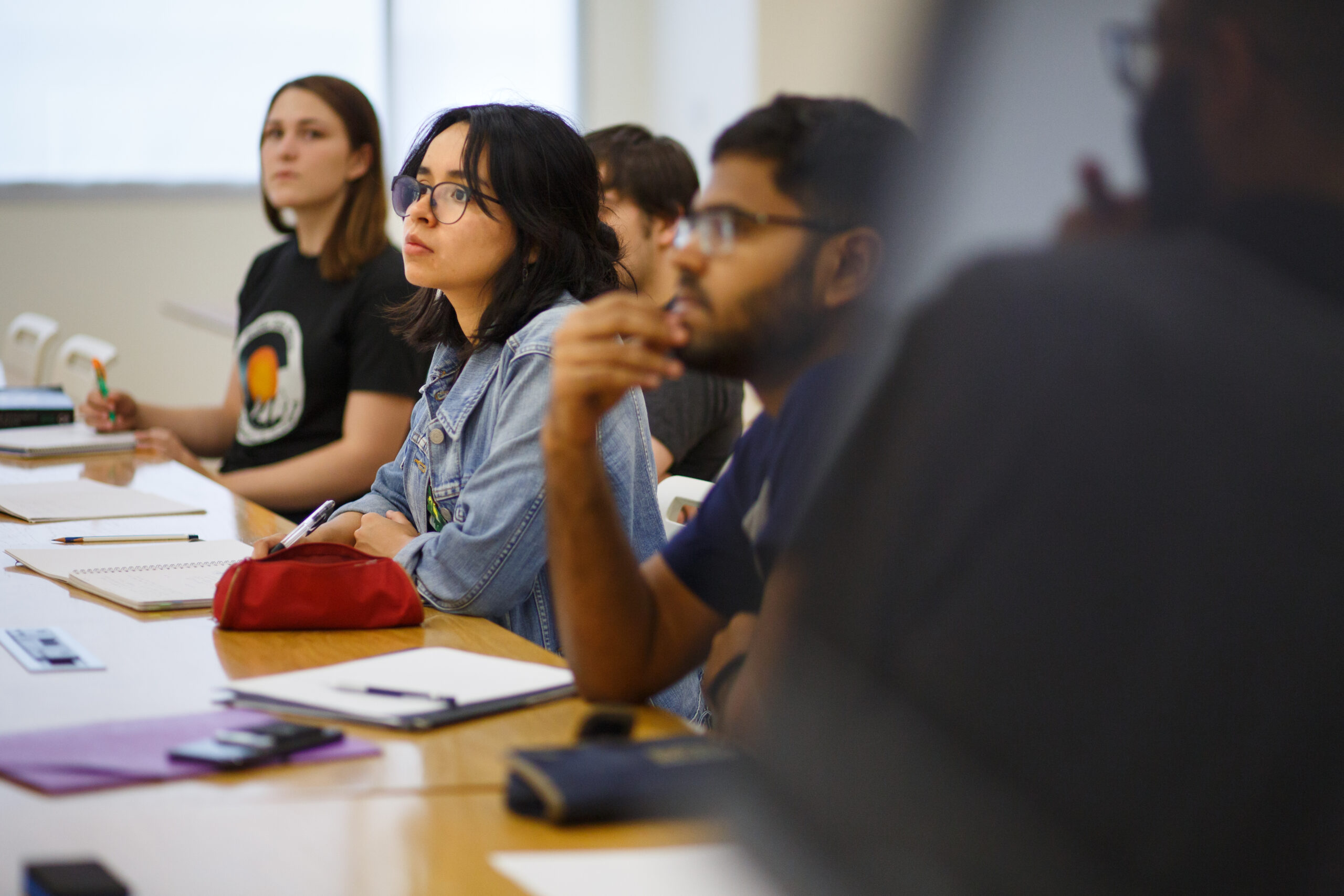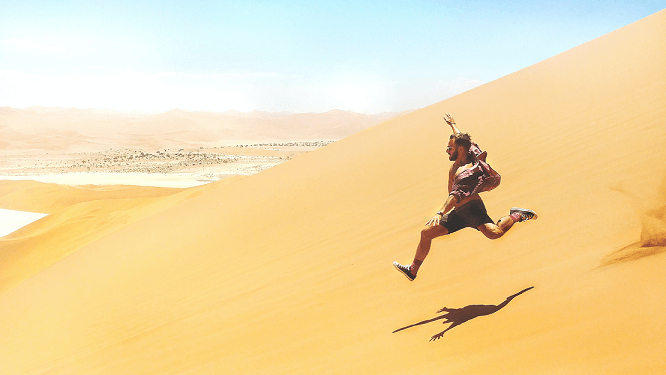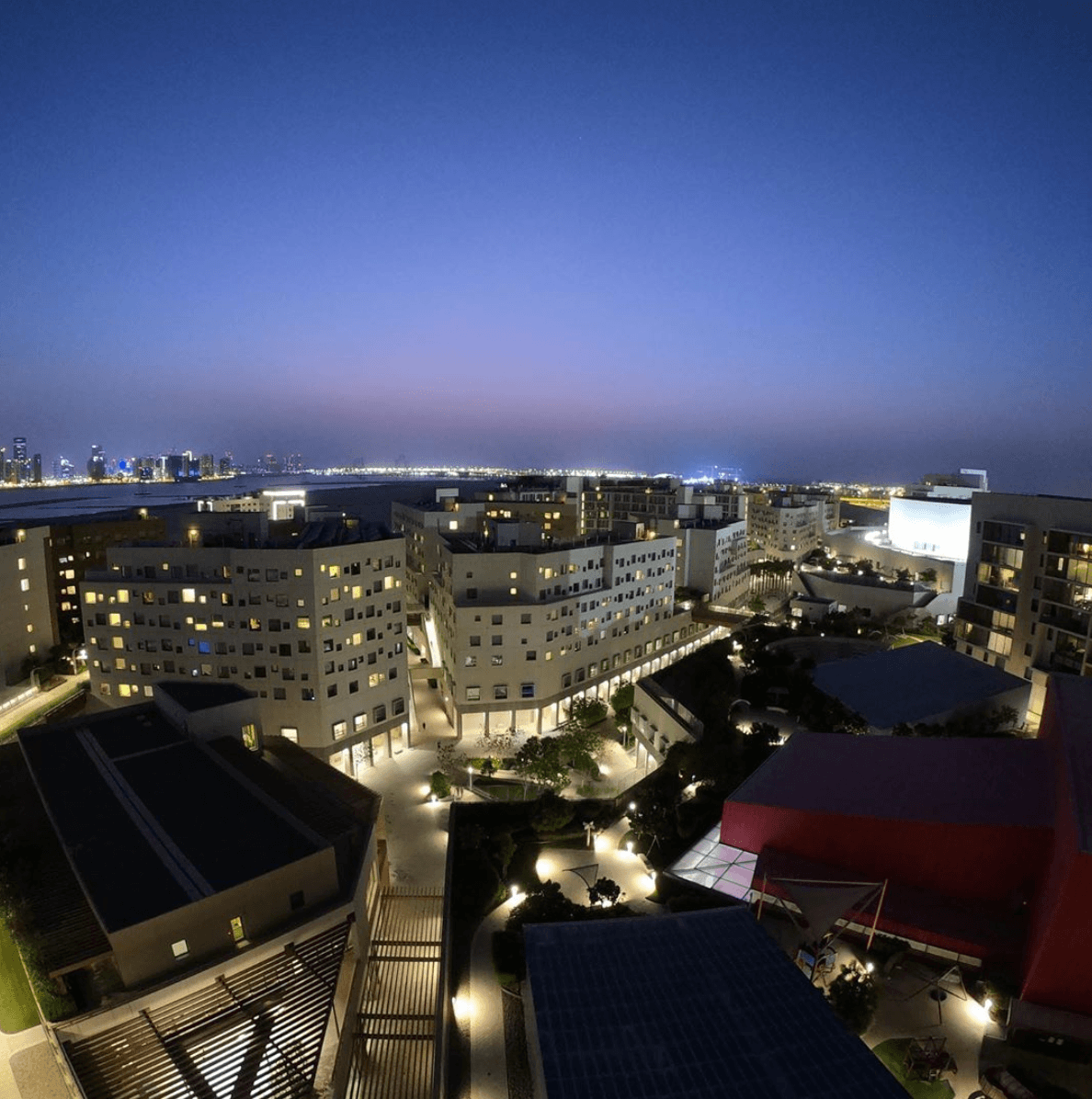Published August 09, 2023
At NYU Abu Dhabi, a Year of Philanthropy and Community Engagement
The TL;DR
- The Arts Center at NYU Abu Dhabi hosted the Candoco Dance Company. The company’s performance featured—and was dedicated to—people of determination.
- The campus community helped plant 5,000 mangrove trees in one hour, part of the United Arab Emirates’ goal to plant 100 million mangroves by 2030.
- NYU Abu Dhabi is part of a partnership that’s launching an Abu Dhabi–specific parenting program.
In 2022 NYU Abu Dhabi demonstrated its commitment to philanthropy and community engagement by leading numerous events. In fact, these events served the greater local and global community. At NYU Abu Dhabi, collaboration with the United Arab Emirates (UAE) community is a critical factor of the University’s engagement principles. What’s more, NYU Abu Dhabi promotes the development of policies that can shape more effective charity work in the UAE and the Middle East and North Africa region. Every year, through their philanthropic efforts, NYU Abu Dhabi strives to discover priorities, enable relationships, cultivate programs, and capitalize on humanitarian opportunities.
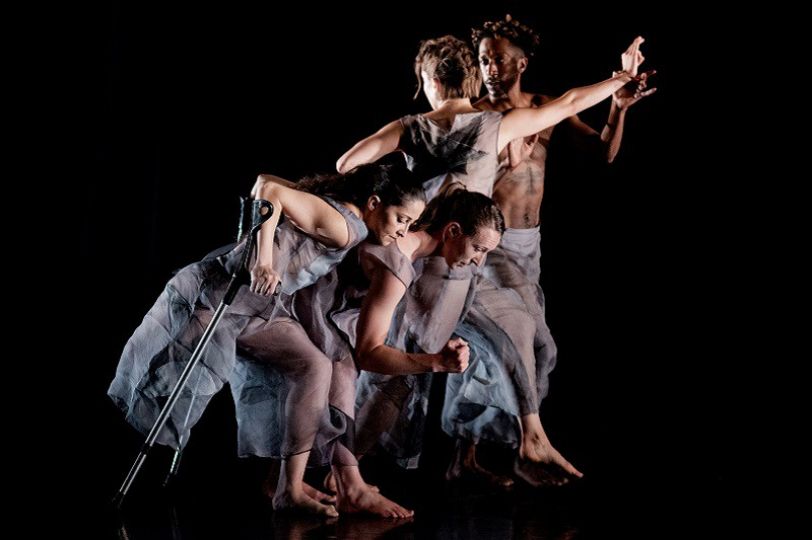
An Inclusive Performance for an Included Audience
The Arts Center at NYU Abu Dhabi invited the Candoco Dance Company to its stage to put on a matinee for Abu Dhabi school students and people of determination. This dance troupe, whose members include people of determination and people without disabilities, dedicates its work to celebrating different ways of being and making art. The company performed an adaptation of Trisha Brown’s landmark work, Set and Reset/Reset. What’s more, the performance was modified with sensory sensitivity in mind. Therefore, the lighting and volume were adjusted for neurodivergent audience members. After the performance, members of the dance troupe participated in a Q and A session with the students.
“One of the most remarkable and rewarding aspects of the performance was during the Q and A session. Students asked questions about the dancers’ artistry and athleticism,” says Bill Bragin. Bragin is the executive artistic director of the Arts Center. “Students asked one dancer, who is a wheelchair user, ‘What you did was so cool. How did you do it?’ As we have a mission to both instill in students an appreciation for dance and the performing arts and help audiences find their ways to speak about the work, honoring people of determination and helping to normalize their full participation onstage and in audiences is essential. This performance and the response from students demonstrated that the youth are ready. And they will carry this with them throughout their lives.”
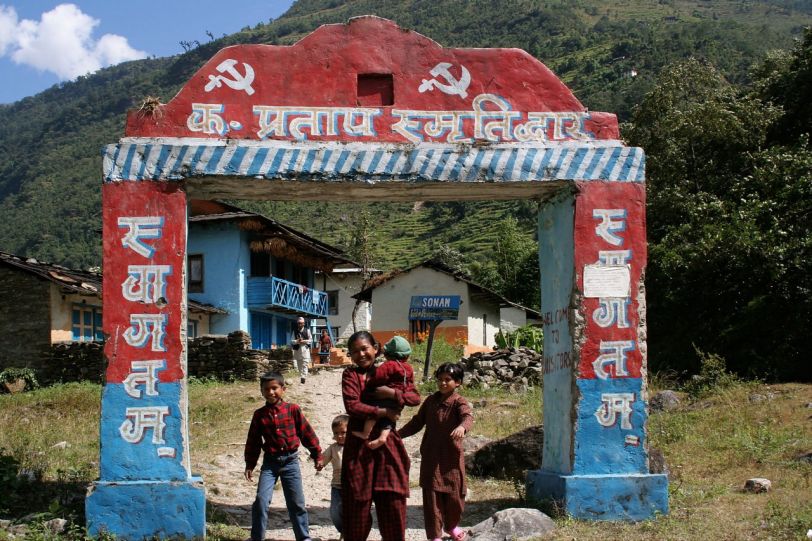
A Health Survey of Indigenous Nepali People Uncovers Clues About the Prevalence and Determinants of Noncommunicable Diseases
A team of researchers investigated the risk level of noncommunicable diseases for Indigenous people in Nepal. The researchers were a part of Assistant Professor Aashish Jha’s Genetic Heritage Group. What’s more, NYU Abu Dhabi postgraduation research fellow Tsedenia Denekew led the team. The researchers discovered that the causes of hypertension in these populations differed from those in worldwide populations. So what does this mean for Indigenous people?
“Our paper reveals that, despite leading highly active agrarian lives, these understudied populations exhibit many cases of hypertension, the primary risk factor for cardiovascular diseases,” says Tsedenia. “We found that many of the globally accepted factors of hypertension were weakly associated with the disease in this cohort. This suggests that there are additional risk factors within these traditional populations that remain unidentified.”
Consequently, the paper is titled “Prevalence and determinants of hypertension in underrepresented indigenous populations of Nepal.” Since publishing their paper, the Genetic Heritage Group at NYU Abu Dhabi has continued to work with these populations. The group employs multiomics to better understand the biological systems underlying hypertension and other noncommunicable diseases.
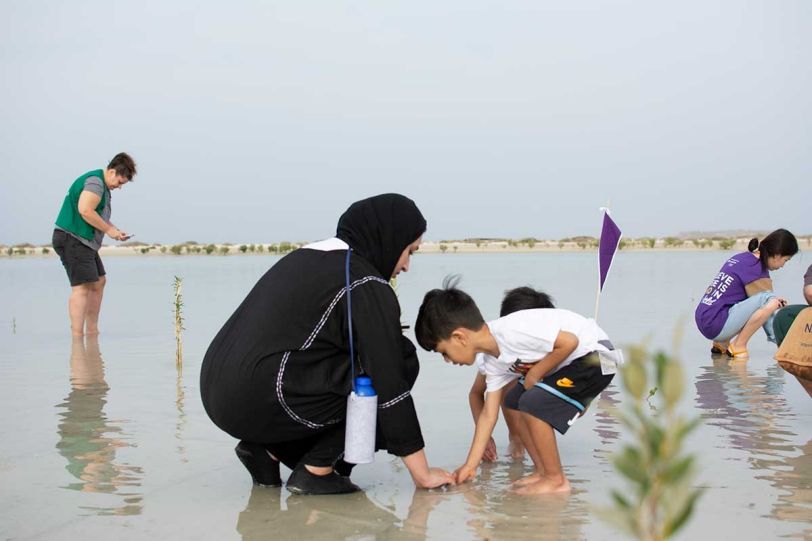
Initiating the Largest Plantation of Mangrove Trees in the United Arab Emirates
More than 100 NYU Abu Dhabi community members gathered near Jebel Ali to plant mangrove trees. In fact, they managed to plant 5,000 trees in less than one hour. This project aligns with the UAE’s goal, announced at COP26, to plant 100 million mangrove trees by 2030. This national commitment is part of the UAE’s strategy to combat climate change with natural-based solutions. As a matter of fact, mangroves function as carbon sinks and protect the UAE’s coasts from rising sea levels. The UAE is home to more than a dozen mangrove sites and has plans to develop more sites across the emirates.
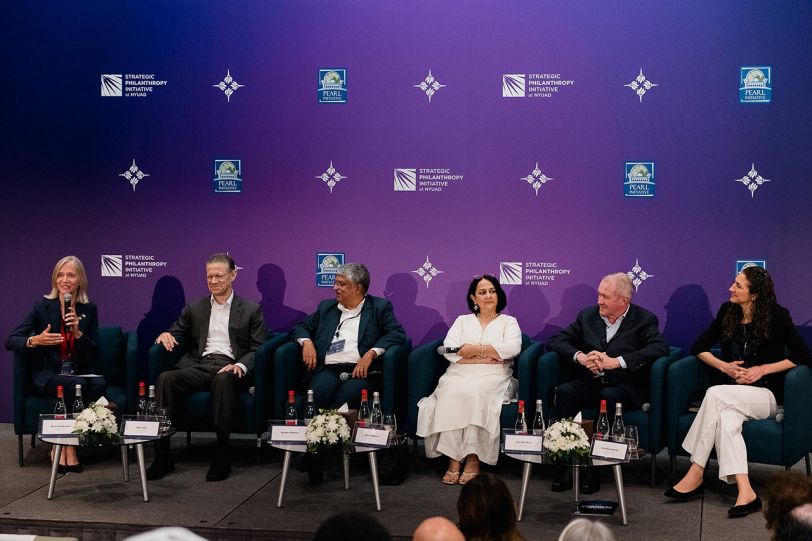
Hosting Prominent Philanthropists to Drive the Conversation on Strategic Giving
NYU Abu Dhabi’s Strategic Philanthropy Initiative (SPI) is the first of its kind in the UAE and the wider region. It is an academic- and community-based platform that shapes a dynamic and strategic practice of philanthropy. Moreover, the program cohosted an interactive discussion with the Pearl Initiative called Effective Philanthropy: Strategies for Sustained Impact. This event gathered a remarkable panel of philanthropic leaders from the Gulf region and South Asia. To further strengthen and promote strategic giving in these regions, the group brainstormed. They discussed the humanitarian strategies and approaches that can best pave the way to sustainable and effective impact.
During this event, NYU Abu Dhabi vice chancellor Mariët Westermann hosted a conversation with a panel of philanthropists that included Badr Jafar, CEO of Crescent Enterprises and founder of the Pearl Initiative; Nandan Nilekani, cofounder and chair of Infosys; Rohini Nilekani, chair of Rohini Nilekani Philanthropies and cofounder and director of EkStep; Shoshana Stewart, president of Turquoise Mountain Foundation; and John McCaffrey, president of the Galileo Foundation.
For another SPI event, Tamkeen and the Aspen Institute organized the return of Ideas Abu Dhabi. It is one of the UAE’s most notable thought-leadership platforms. In fact, they organized a discussion with the Bill & Melinda Gates Foundation and staged it at NYU Abu Dhabi. Bill Gates, prominent philanthropist and cochair of the Bill & Melinda Gates Foundation, joined Rima Al Mokarrab, the cochair of Ideas of Abu Dhabi and chair of the Tamkeen board, in a fireside chat. Their session, Big Bets and Patient Capital, explored various topics. They discussed the ways in which new models for charity can effectively create maximum impact in the long term.
According to NYU Abu Dhabi interim director of executive education Renee Dugan, making space for conversations about strategic giving and charity work is necessary. These discussions can help the world overcome widespread challenges. “Philanthropy is almost as old as recorded human history. But optimizing its effectiveness for the benefit of society and the planet has never been more urgent,” says Dugan. “Countries and populations around the world are facing challenges to their habitats, health, livelihood, mobility, political systems, cultural heritage, and even sovereignty on a regular basis. Both within and between countries, philanthropy can play a major role in tackling and solving problems together with governments, nonprofit organizations, businesses, and other civil society institutions.”
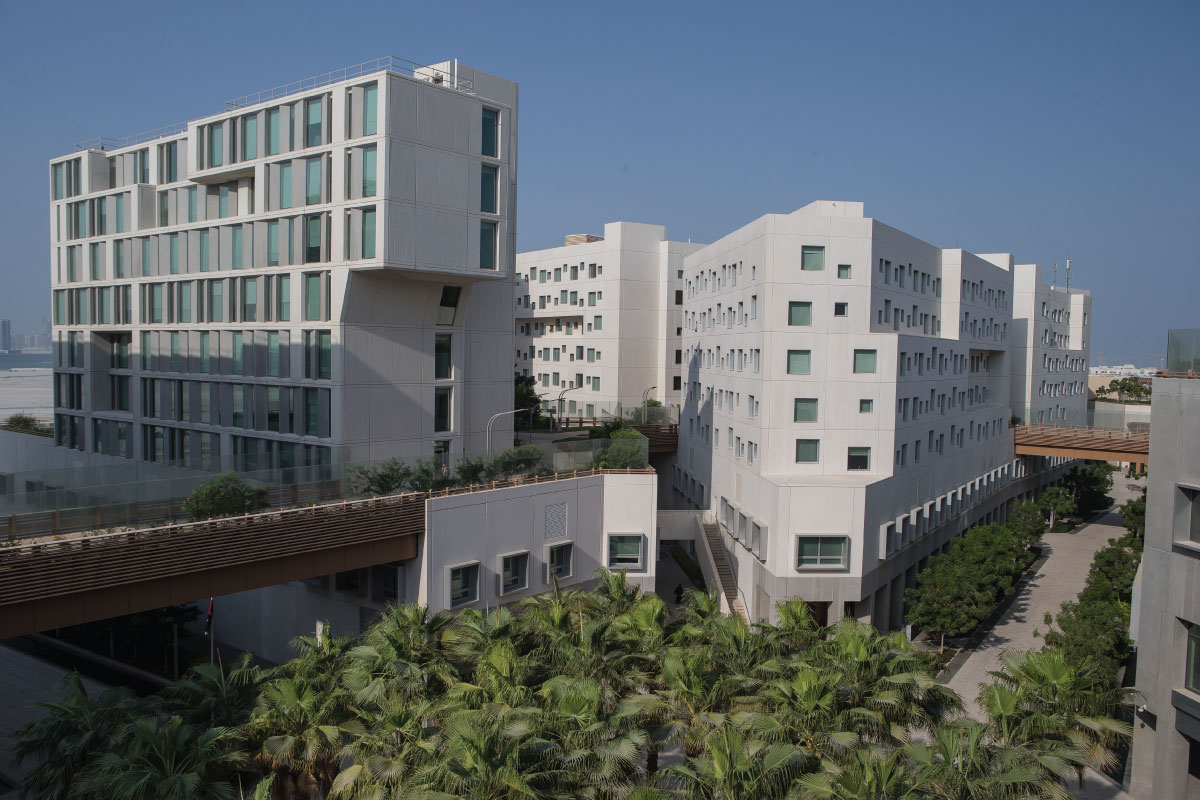
Launching an Abu Dhabi–specific Parenting Program in Partnership with the Abu Dhabi Early Childhood Authority
The Abu Dhabi Early Childhood Authority is launching an Abu Dhabi–specific parenting program. Offered in partnership with NYU Abu Dhabi, Zayed University, and the Emirates College for Advanced Education, the program involves a group of Emirati and international academics, experts, and researchers. In addition, the evidence-based and culturally grounded program will cover a number of topics. The various subjects are related to early childhood development and will use innovative training, engagement, and research tools.
The parenting program is designed to equip parents with the knowledge, skills, and resources needed to promote the healthy development of their children. “Through this program we aim to help parents build good, healthy, positive relationships with their children; develop parents’ knowledge about their children’s developmental milestones and the associated psychological, physical, cognitive, social, and health needs; and promote values of understanding and tolerance within the family,” says Antje Von Suchodoletz, associate professor of psychology at NYU Abu Dhabi. “We also aim to establish parents’ trust with their children and build strong family bonds; ensure family stability by providing correct and reliable information that puts parents on the right track while raising their children; improve parents’ ability to fulfill and respond to children’s needs to ensure their healthy and positive development; and educate parents about the additional support services available to them should they or their child need them.”
By the end of this program, parents will know how to engage, talk, and play with their child. They will know how to observe their child’s growth and understand how their own life story influences their parenting practices. Furthermore, parents will learn about the importance of culture in shaping their child’s life.

